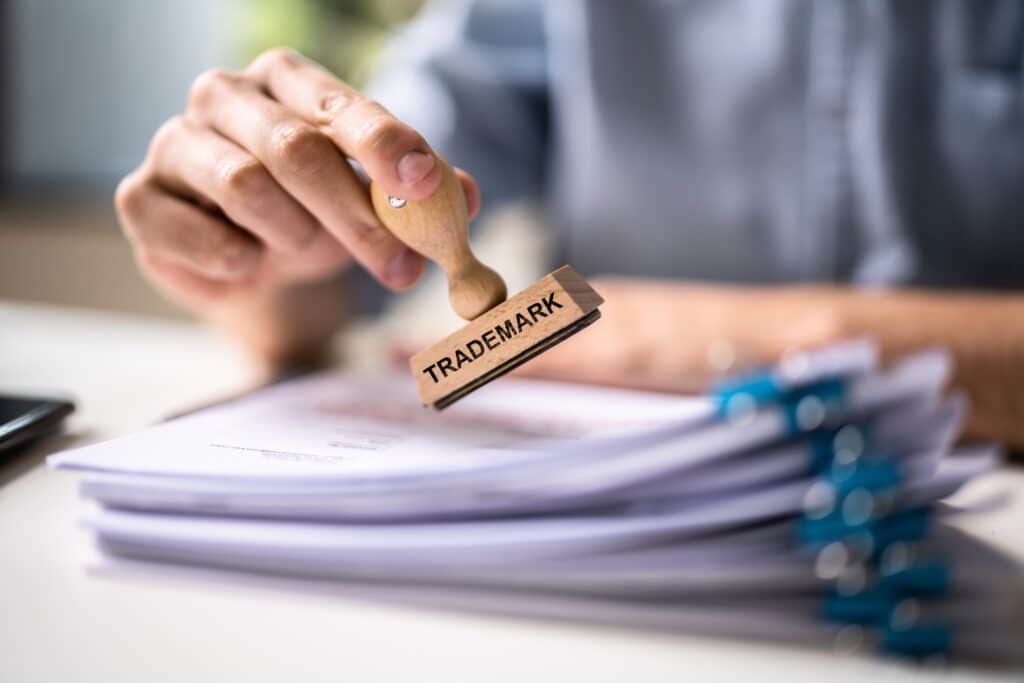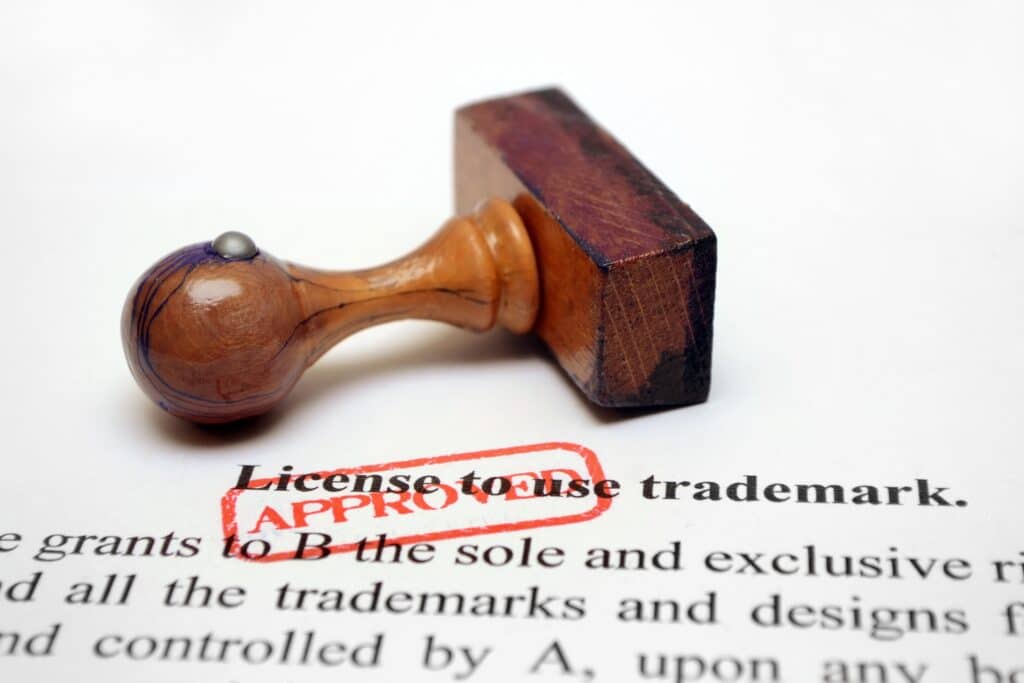
You may feel that you’re acing your estate planning, because you have created a plan for both your personal and business assets: real estate, stocks, different bank accounts, trustees, business co-owners… And that’s great. But I want to draw your attention to an frequently overlooked business asset that gets lost in the estate planning shuffle – one that often comes back to bite your loved ones as a probate sticking point later on. I’m talking about your business’s trademark, also known as a mark.
Do you know how to handle trademarks in estate planning?
During your lifetime and beyond, your mark can act as a powerful business magnet, if wielded correctly. However, if you are careless about how you choose and use your mark, this can create great legal trouble during your lifetime – and after. Watch my video below to learn the basics about establishing your trademark.
READ THE TRANSCRIPT
Hi. Thanks for tuning in to another dose of Bite-Sized Bits of Knowledge, where we give you meaningful information in a short amount of time. Today, we’re continuing with intellectual property, and we’re talking about trademarks.
So trademarks are just one of the other three areas of this body of law. In this case, trademarks are protecting words, slogans, images, logos, and combinations of all of those things, like words and logos. Sometimes logos have words on them.
And so all those variations of things can be protected. They’re not original works of authorship, like a copyright. So it’s under this other body of law called trademark. Trademark basically says that you’re claiming ownership to this phrase or this image, this mark. We’ll call it a mark.
It could be a trademark for a product or service mark, for a service business. You’re claiming ownership of that mark, and you’re preventing other people and businesses from using that mark in commerce. Now, trademarks have, again, a common law protection, just like the copyright. And you can be protected without registration, but you’re only protected where you’re using it. It gets cloudy when you’re doing an ecommerce business because you kind of could be using it everywhere, but you’d have to prove that.
If you get registration, then you’re presumed to be using it throughout the entire United States. So, somebody using it across the country, while you’re using it here, there’s an argument over who started first to have a carve out of liability, but you’re presumed to be using everywhere.
Whereas if you don’t register it and you do it here and somebody’s using it here, they’re free to do so after you start business. So you really want to not sit on your rights here. You want to get it registered. You want to make sure that you’re maximizing your forceability of your marks.
I would recommend that you understand that when you’re creating a business or creating these marks or creating these slogans, certainly if they’re foundational to your business, you want to make sure that you’re not immediately starting out infringing on another person or business’s rights. You can go to the USPTO.gov website and search marks and do what’s called a knockout search, where you can see if the exact same thing that you’re trying to do exists as an existing mark. What I call a knockout search because all that does is confirm that the exact same thing exists.
Now, the standard for trademarks is not the exact same thing. The standard for trademarks is does it cause substantial consumer confusion? Substantial consumer confusion. That’s an issue of fact that a jury would have to decide.
Basically what that means in English is does your mark – is it so confusingly similar that it makes people reasonably believe that it’s from another source, like a more known source? If you try to use Coke or Amazon, it’s pretty obvious. But if you try to make a variation of it or with their style of their font and their color, that might make people think it’s from Coke. And if it makes people think it’s from Coke then they’re being falsely led to believe that it has a quality and reputation and brand about it that it doesn’t and that’s actionable. So you need to be careful.
There are lawyers that focus exclusively on this area. They do searches. They make recommendations of what you should and should not do. Just suffice to say you need to be careful. You need to do your due diligence before you make things because these things are actionable.
Just a couple of examples of course I mentioned Amazon. Think of the Nike swish checkmark. Those are icons, those are trademarks. Those are things you can’t just put on a T-shirt and sell it without permission. Think about clothing in general, getting the designs or toys that use the construction vehicles for kids like Caterpillar. They’re Caterpillar toys. Those are licensed names that are going on those toys, they’re not probably made by Caterpillar who makes actual equipment.
So you got to just think it through, make sure you’re getting the right advice you need, and do it up front because you will pay for it later in many circumstances.
The next video, we’re going to talk about patents, so thank you again for stopping by. Don’t forget to download our free business planning stress test. It’s linked below in the description. Stay tuned for more. Thank you.
So, long story short, trademarks give you a right of exclusion. And this exclusivity is powerful for your business. Think of how you make quick decisions in the grocery store between the same product with different brands – sometimes, it comes down to seeing that logo or brand name that you recognize. The strength of your mark could mean the difference between someone choosing to buy or passing you by.
Given that advantage, perhaps now you can see why people would vie for your business’s trademark after you’ve passed. This is where some very simple steps taken ahead of time can help save your loved ones the trouble of fighting for your mark, starting at the very beginning of your mark’s life.
Due Diligence and Registration
As discussed in the above video, you can easily invite a lawsuit by stepping on someone else’s trademark territory. Unlike copyrights or patents, which have decades-long but finite registrations, trademark registrations are valid as long as the business actively uses them – or attempts to use them. (Sometimes, usage may be blocked for legitimate reasons, like a trademark opposition.) Because of their longevity, similar or even identical trademarks are allowed for businesses in different classes.
For instance, if you open a mobile dog grooming business called “Polly’s Pooches,” are you allowed to register that name as a mark if “Polly’s Pooches” is already registered for a children’s dog stuffie maker? The answer is: very likely yes. Why? Because a reasonable person searching for someone to give their schnauzer a trim isn’t going to confuse the toy business for a mobile dog groomer business.
This longevity also means that your initial mark choice matters a lot. You could be stepping on a much older trademark in a similar classification. Before you even begin planning how to handle your trademark within your estate, do a thorough clearance search so that you can register it unobstructed. While a mark can still carry brand power even without registration, a clear registration date gives you – and your inheritors – much more legitimacy in any disputes that may come up.

Indicate Who Owns the Mark In Your Estate Plan
Many business owners assume that passing on ownership of the business inherently denotes passing on its intellectual property assets. It’s easy to assume, because IP assets often feel less material or weighty than other assets – even equally “invisible” ones like a savings account.
Yet IP assets need to be treated like any other piece of property in the business. They need to be organized and passed to specific people in discrete ways in order to avoid the snags of probate. And, much like conflict over other business assets can become unpleasant, the commercial value of using a mark can evoke unfriendly disputes for your loved ones. Even though it’s stressful, your loved ones may feel compelled to fight for your business’s mark, or they may lose one of the most valuable ways to market and continue the business.

Hopefully, this is persuasive enough to help you remember your trademark and other intellectual property assets when you create your estate plan. If you’re anything like me, you’ve put a huge amount of work and dedication into building your business and your brand. Make sure that your loved ones receive all the benefits of that work, and give them the security of your business’s legacy – including its valuable intellectual property.
Originally published 4/14/22. Updated 10/20/23.